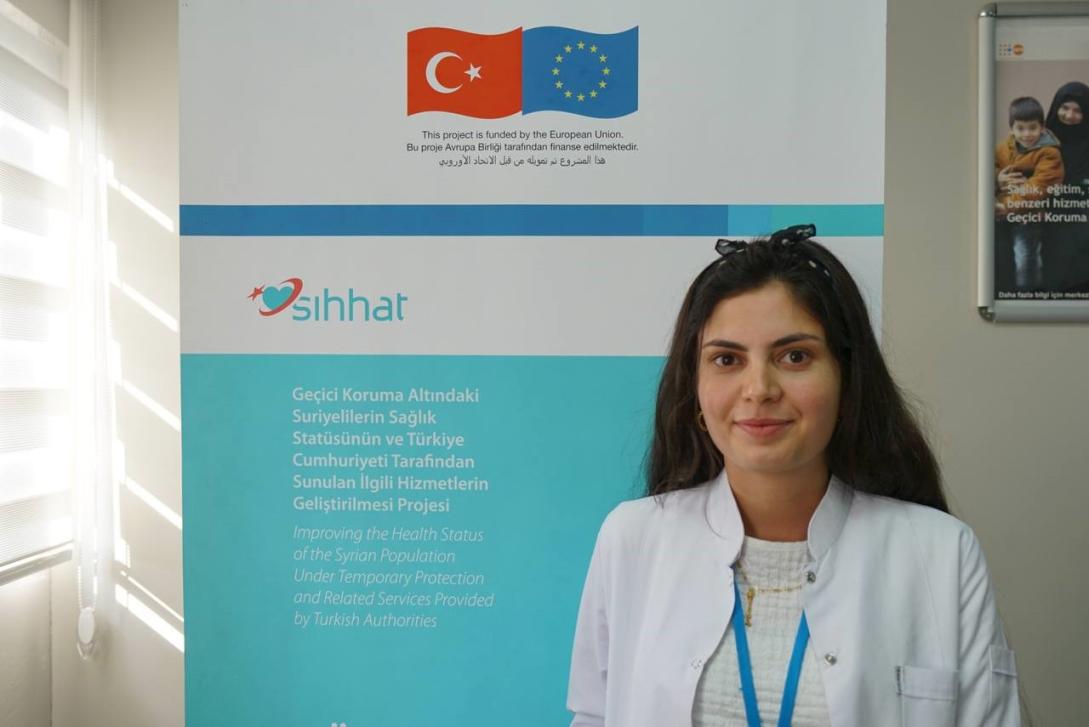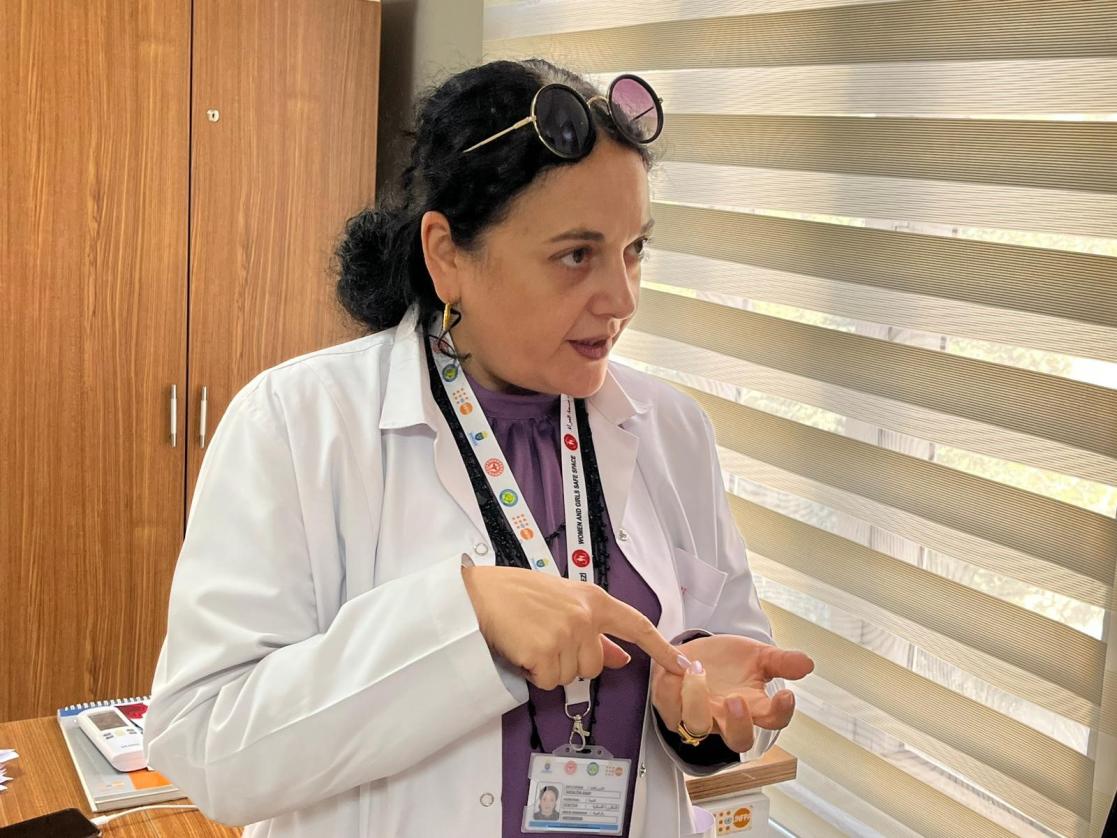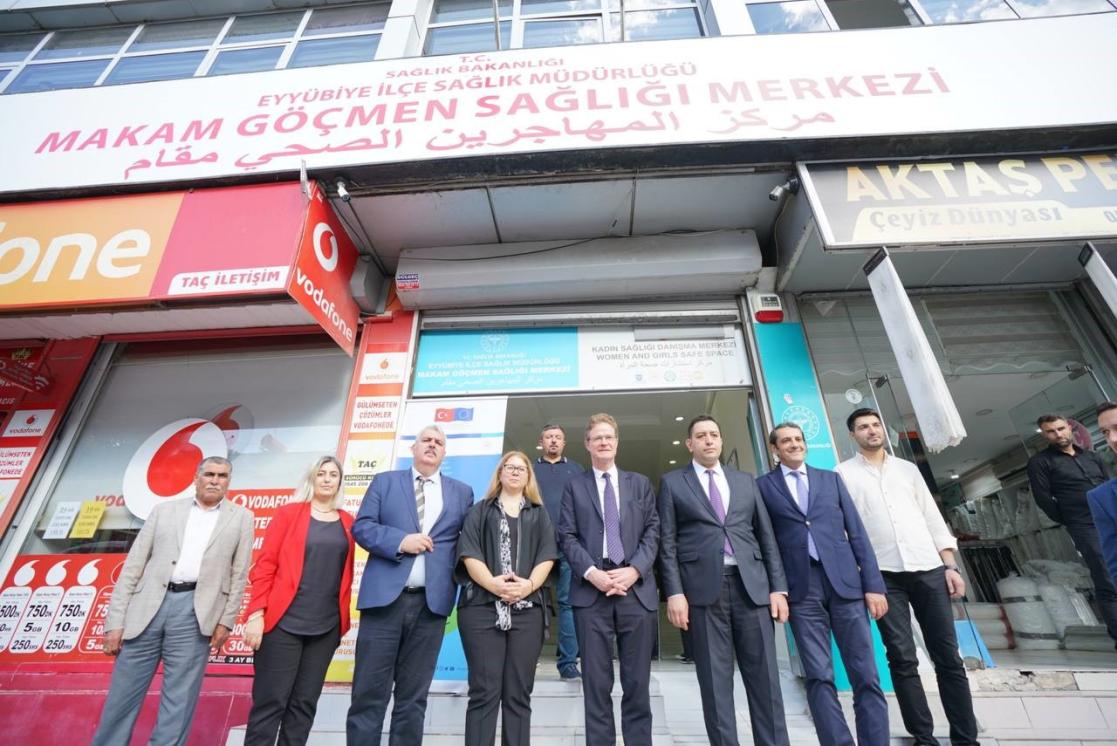“Whenever we get sick, we come here": how EU supports healthcare in Türkiye

“We are very pleased with the health services given here.
These words belong to Hend, a Syrian woman living in Şanlıurfa. She speaks of the Makam Migrant Health Centre, a part of the EU-backed SIHHAT Project in the Eyyübiye district. She mostly brings her child here. But this time, the patient is herself. She's been examined and will now get her medication.
A small girl smiles from the end of the corridor and then gets closer to us. She is not timid at all. Smiling, she says “hello” in Turkish. Her name is Cudi, and she is ten years old. She is at the health centre to accompany her sister, who got ill. “We are three siblings. Whenever we get sick, we come here,” she says.
The migrant health centre gets crowded as visitors patiently await their turns in front of the clinics. Nataliya Asaf, a gynaecologist, says that she sees dozens of patients a day. She is originally from Ukraine but lived in Syria before the war with her husband. Now, she lives in Şanlıurfa and works in this migrant health centre.

Doctor Nataliya Asaf
Nilay Sapmaz, the general practitioner, works at the Provincial Health Directorate. For five days, she has been filling in for another doctor. According to her, “this health centre is very active. One of the good practices is public training here, and the other one is the nursery for the children of patients and trainees.”
Öznur Bulut Gazanfer, the Head of Public Health Services of the Provincial Health Directorate, says: “Before 2017, refugees were treated at family health centres. However, with the SIHHAT Project, migrant health centres were established to ease the burden on the Turkish health system.” The refugees can also visit family health centres if they wish. The importance of Migrant Health Centers is that patients are able to receive healthcare services in their own language. Abdullah Solmaz, Provincial Health Director, assures that Syrians get equal access to the health care services.
EU investing in quality healthcare in Türkiye
Şanlıurfa is one of the provinces where the Ministry of Health runs the SIHHAT Project. İnanç Söğüt, Deputy Director of the SIHHAT Project, says: “In Şanlıurfa, there are 17 such centres in 11 districts. Between January and mid-October 2023, 350,000 people benefited from our primary healthcare services. We have also vaccinated almost nine thousand children.”

Ambassador visited the Makam Migrant Health Centre
The Head of the European Union Delegation to Türkiye, Ambassador Nikolaus Meyer-Landrut, who visited the Makam Migrant Health Centre in October 2023, reflects: “When I visited the Makam Migrant Health Centre, I saw the satisfaction of the patients, health staff and project officials, and I was also very pleased. Our contribution to the refugee projects in the health field in Türkiye, including SIHHAT, has reached €720 million. These projects aim to help the integration of refugees and supporting quality of health care services in the country.”

“All services provided at this centre are free of charge”
Providing primary and secondary healthcare services
Health centres provide primary healthcare services within the scope of the SIHHAT Project, while reinforced centres provide internal medicine, paediatrics, gynaecology, oral and dental health, as well as psychological-social support services in addition to primary healthcare services.
There are over 170 such migrant health centres in 32 provinces employing nearly 4 thousand people. Between 2017 and October 2023, the centres provided more than 33 million medical counselling services and administered 9 million doses of vaccines.
Photos by Murat Baykara





